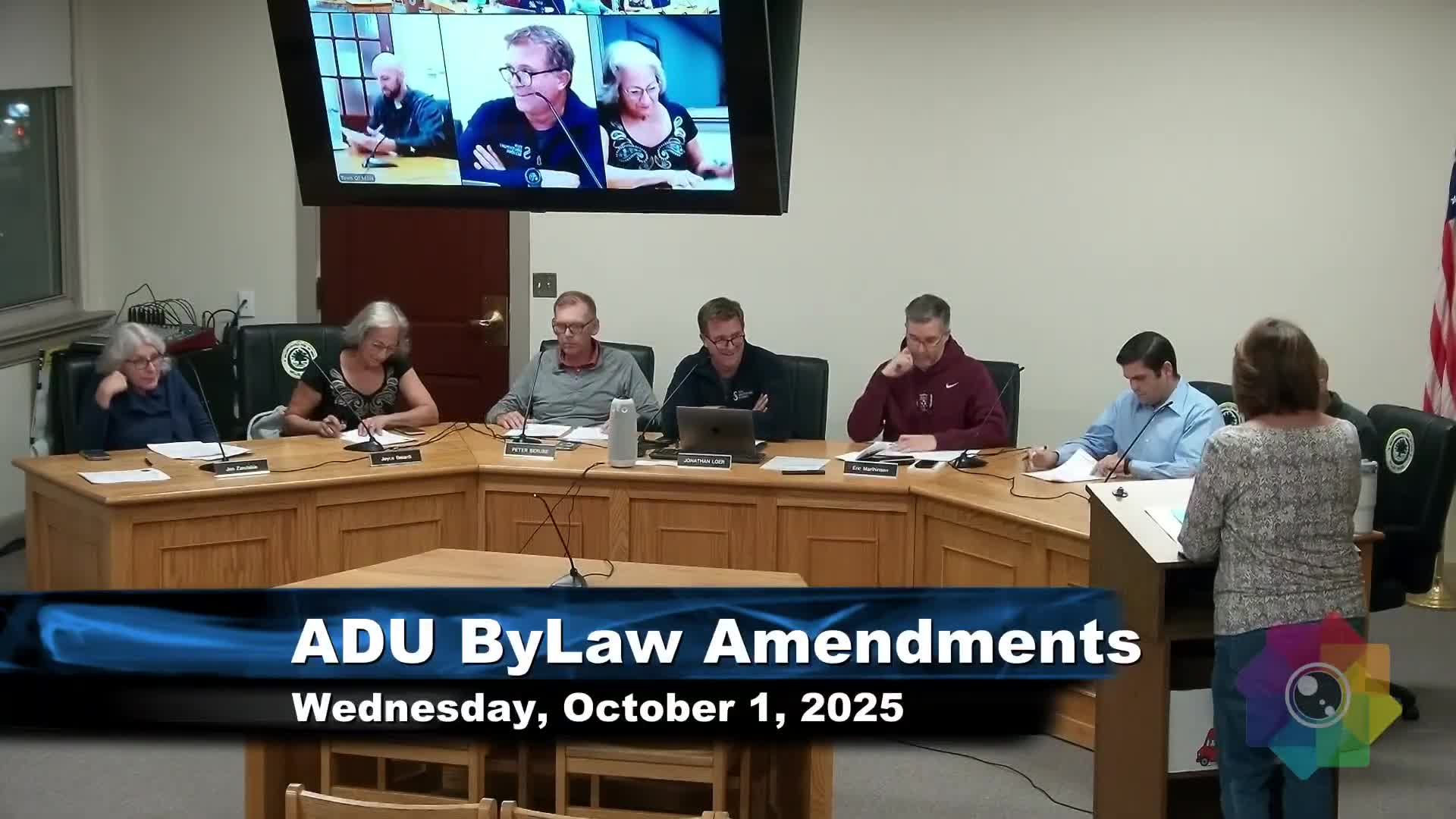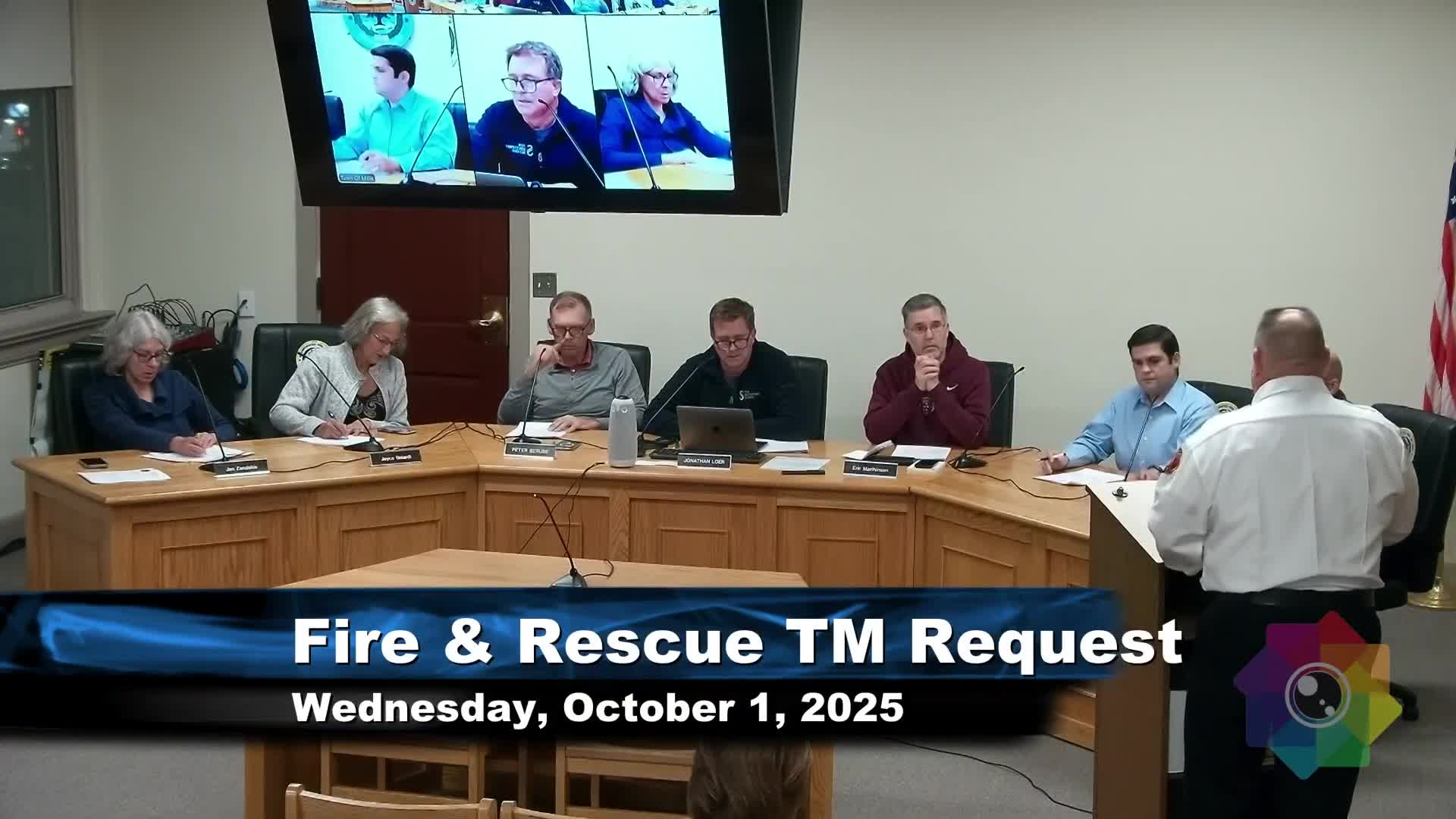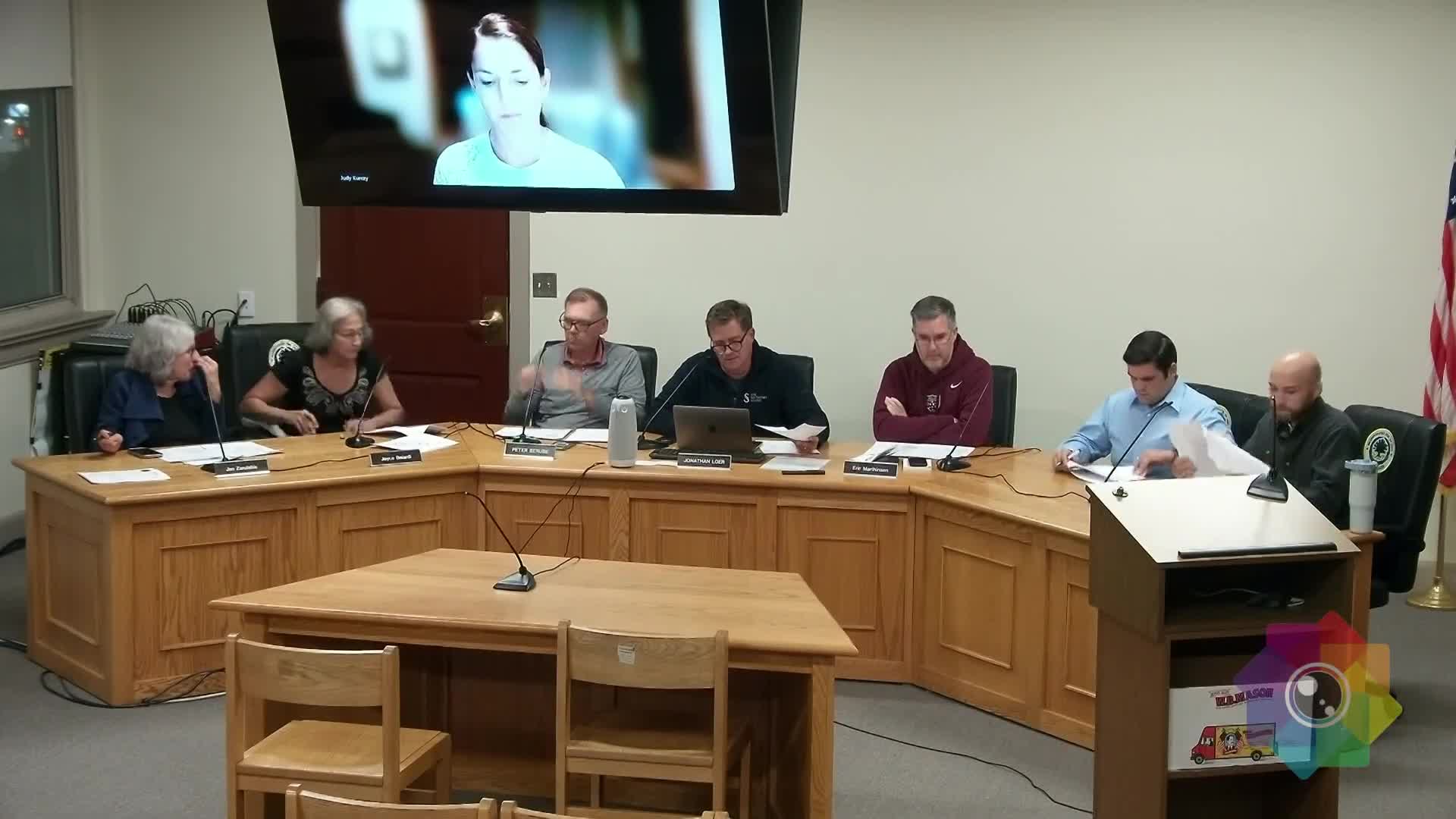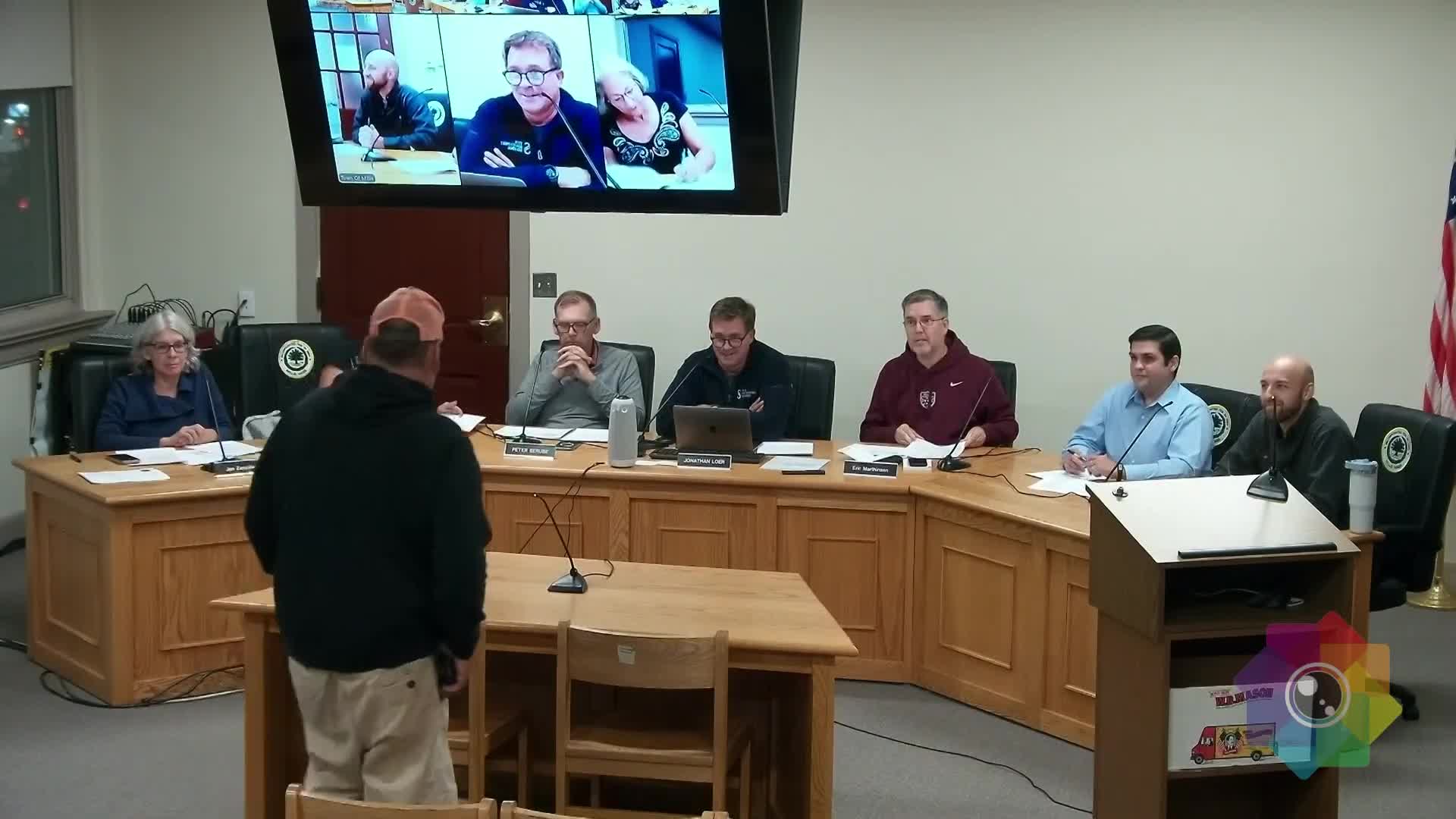Article not found
This article is no longer available. But don't worry—we've gathered other articles that discuss the same topic.

Attorney General requires wording changes to Millis ADU bylaw; planning board to present amended article at fall town meeting

Millis Fire Department requests capital funding for replacement multi-gas meters as state earmark stalls

Millis Finance Committee reviews draft fall town meeting warrant; 16 articles listed including road work, OPEB, and ADU changes

